Greetings, my pawsome human minions.
Forrest here, coming to you about a subject that haunts every feline home with its malodorous air. And it’s a subject my parents act surprised about any time it happens, even though they already know the answer. Anytime I pass one little puff of a poot, the both of them always make a big deal, fanning the air and groaning as they ask, “Forrest, did you fart?”
So, there we have it. Our question today is, do cats fart?
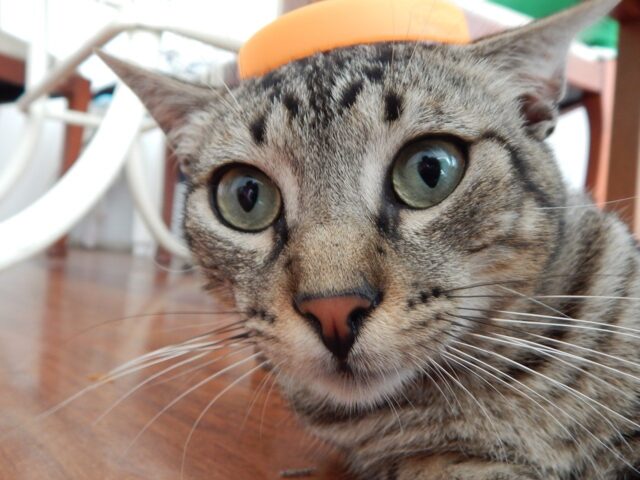
You know we do, but listen, farting is natural, and cats are all about living as close to nature as possible. So, of course, that means you’ll smell a little feline flatulence from time to time. But don’t act all shocked by it, ok? It’s something we all do because we all have digestive tracts. I’ve heard both my mom and dad rip more than a few, especially Dad…talk about noxious. So they have no room to be dramatic when it comes to passing gas.
But here’s the deal. If you notice your cat is farting up a storm big enough to power a small farm, then something might be going on inside his belly.
When The Occasional Toot Breeze Becomes a Fart Storm
Flatulence occurs when gas builds up in the digestive tract. Sometimes it comes up the esophagus and escapes as a belch. Coming out the back end, the gas passing is lovingly known as a fart. And the occasional stink cloud is a normal thing, but when your cat keeps letting them rip and they smell more ripe than usual, keep an eye peeled for other signs of tummy distress such as bloating, diarrhea, and vomiting.
What could be making those farts so stinky that even your cat flips a tail at them? To help you get to the eye of the fart storm, here are some of the causes behind excessive gas in cats.
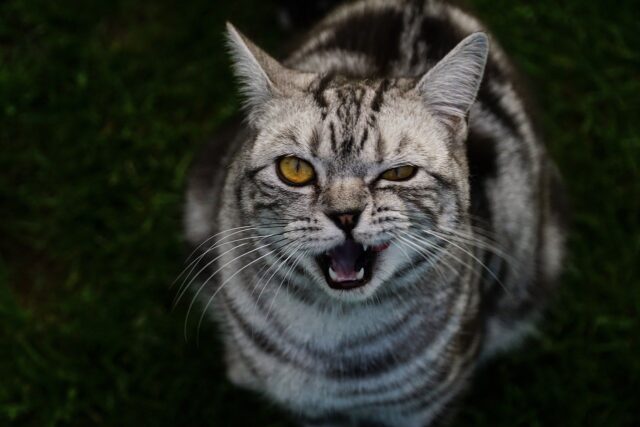
Eating Too Fast
Cats typically eat their food slowly, but sometimes factors arise that make us feel we need to scarf our food. For example, if another cat is hanging around the food bowl, I’d be inclined to inhale the food to ensure the uninvited diner doesn’t get my share. The problem with eating too fast is the tendency to gulp air with the food. With that much air in the belly, it has to go somewhere, so presto stinko!
You might consider a puzzle feeder or lick mat to slow a fast eater. You can also dole out food in smaller portions so kitty doesn’t gulp all the vittles in one big heap. Also, if the scarfing is a result of cats competing for resources, start feeding them from separate bowls with a good distance between them.
Eating Too Much
Overindulging in a meal can be easy to do. After all, food is delicious. But when you overfill the stomach, everything gets uncomfortable and rumbly, leading to indigestion that can manifest as fart clouds. Food puzzles and small portions will also help with a cat who wants to overload their gut at every meal.
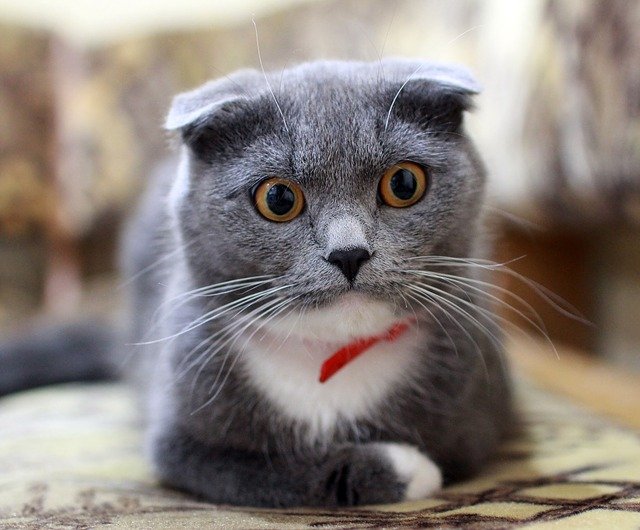
If your cat overeats, you may need to examine why. Is the food not providing all the necessary ingredients? Are you feeding your cat too much? Need help figuring out how much food is just right? Check out how to Avoid Overfeeding Your Cat With These 5 Tips.
Eating Bad Food
This is a no-brainer. Eating spoiled food means you’re snacking on gross stuff that can make you ill. The bad bacteria in spoiled food can lead to serious stomach upset and when the gut churns, so do the farts.
If food spoilage is the reason for your cat’s upset stomach, you likely identified what your naughty cat ate before symptoms began, especially if your cat has a bad habit of digging in the garbage. I know, some kitties can be so uncouth. If you have a garbage cat, choose trash cans with lids that are hard to knock over.
When it comes to plants, make sure your cat isn’t snacking on ones that can harm felines. Here’s a handy guide featuring 12 Cat Safe Houseplants & 13 Toxic Ones.
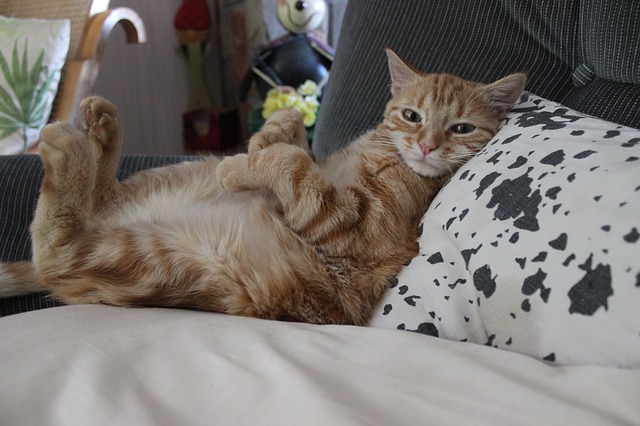
Eating Food Kitty’s Tummy Doesn’t Like
Allergies can tear up a tummy, bringing on diarrhea and flatulence that will continue on for as long as they’re eating the offending food. Keep this in mind if you’re starting your cat on a new diet. Do it slowly by tapering down the old food as you slowly introduce the new. However, if you notice sudden stomach discomfort in your cat, discontinue the new food immediately.
Here’s a weird fact about us magical felines: cats can become allergic to a specific food very suddenly. It may be the same vittles they’ve been munching for years, but one day you suddenly get a face full of farting due to your cat’s new allergy.
Eating Might Not Be the Problem
If you’ve tried to solve your cat’s farting problem to no avail, the tummy rumbles could be a sign of a gastrointestinal issue that requires veterinary attention. So, if symptoms don’t abate or if they become severe, contact your vet. If there’s blood in the stool, call them right away.
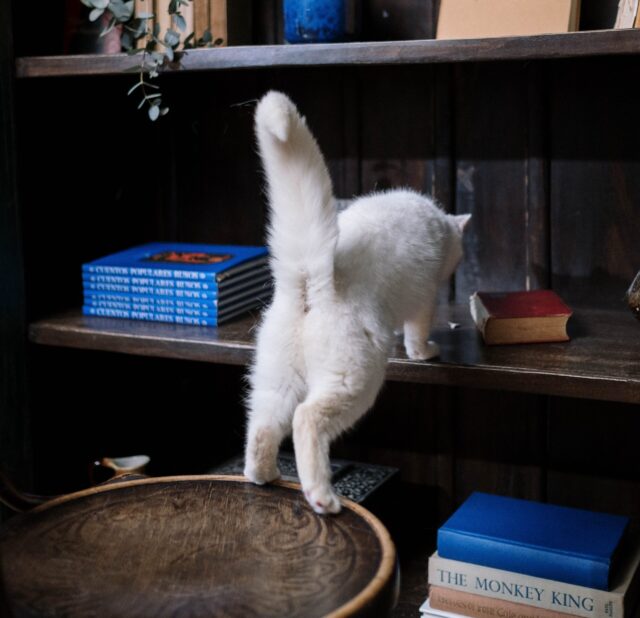
The bottom line, farting is normal. We all do it, so don’t act surprised when your cat randomly fluffs out a fart. And, in discussing feline farts and how eating can determine their rancidity, I would be remiss in not offering my usual reminder…don’t forget to feed the cat.

